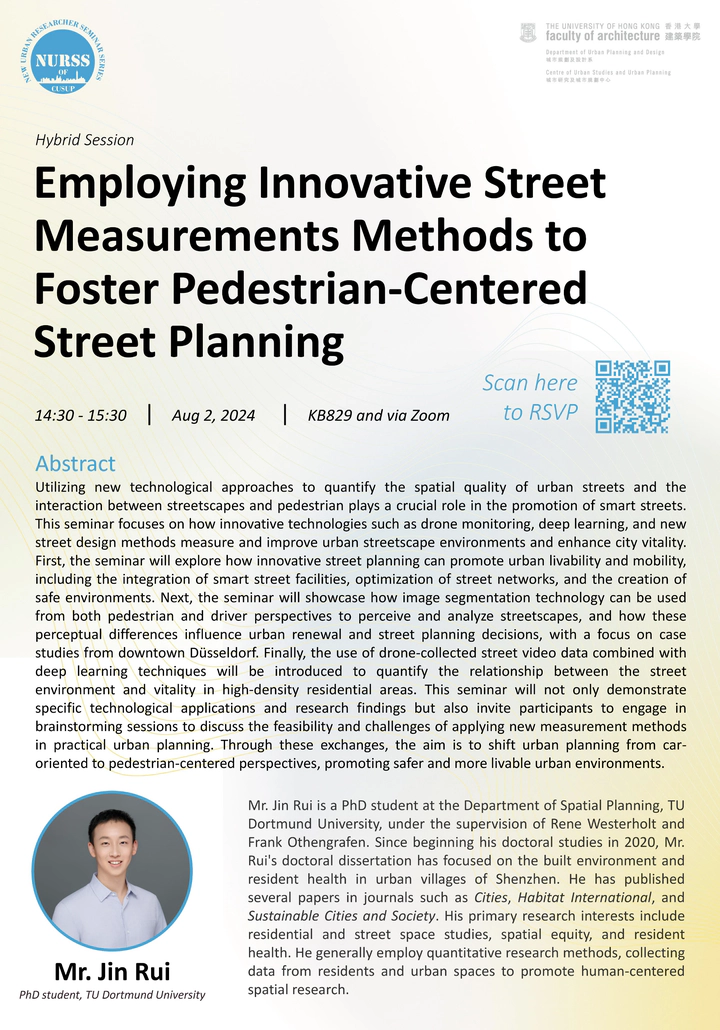Employing Innovative Street Measurements Methods to Foster Pedestrian-Centered Street Planning

Abstract
Utilizing new technological approaches to quantify the spatial quality of urban streets and the interaction between streetscapes and pedestrian plays a crucial role in the promotion of smart streets. This seminar focuses on how innovative technologies such as drone monitoring, deep learning, and new street design methods measure and improve urban streetscape environments and enhance city vitality. First, the seminar will explore how innovative street planning can promote urban livability and mobility, including the integration of smart street facilities, optimization of street networks, and the creation of safe environments. Next, the seminar will showcase how image segmentation technology can be used from both pedestrian and driver perspectives to perceive and analyze streetscapes, and how these perceptual differences influence urban renewal and street planning decisions, with a focus on case studies from downtown Düsseldorf. Finally, the use of drone-collected street video data combined with deep learning techniques will be introduced to quantify the relationship between the street environment and vitality in high-density residential areas. This seminar will not only demonstrate specific technological applications and research findings but also invite participants to engage in brainstorming sessions to discuss the feasibility and challenges of applying new measurement methods in practical urban planning. Through these exchanges, the aim is to shift urban planning from car-oriented to pedestrian-centered perspectives, promoting safer and more livable urban environments.
About the Speaker
Jin Rui is a PhD student at the Department of Spatial Planning, TU Dortmund University, under the supervision of Rene Westerholt and Frank Othengrafen. Since beginning his doctoral studies in 2020, Mr. Rui’s doctoral dissertation has focused on the built environment and resident health in urban villages of Shenzhen. He has published several papers in journals such as Cities, Habitat International, and Sustainable Cities and Society. His primary research interests include residential and street space studies, spatial equity, and resident health. He generally employ quantitative research methods, collecting data from residents and urban spaces to promote human-centered spatial research.